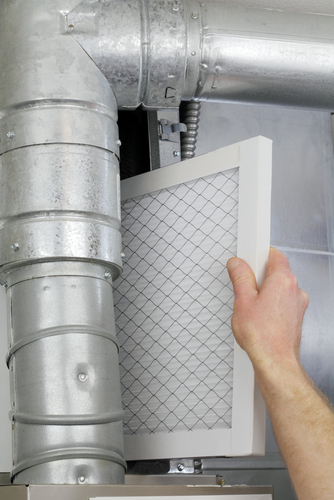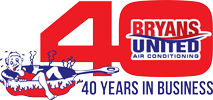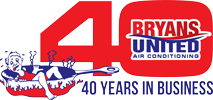 HVAC professionals talk a lot about air filters. There are good reasons: The air filter impacts the proper amount of heating and cooling airflow—the lifeblood of your HVAC system—and also directly affects healthy air quality in your home. Choosing from a wide assortment of air filters requires making several decisions to separate the appropriate model from either the inefficient or overly-restrictive. Here are some tips for choosing the right air filter.
HVAC professionals talk a lot about air filters. There are good reasons: The air filter impacts the proper amount of heating and cooling airflow—the lifeblood of your HVAC system—and also directly affects healthy air quality in your home. Choosing from a wide assortment of air filters requires making several decisions to separate the appropriate model from either the inefficient or overly-restrictive. Here are some tips for choosing the right air filter.
- Ask MERV. The MERV (minimum efficiency reporting value) system rates air filters on a scale from 1 to 16. The higher up the MERV scale, the better the filter removes smaller airborne particulates from the household environment.
- Go beyond original equipment. OEM air filters typically supplied with a new unit are often “throwaway” fiberglass filters with MERV ratings from 1 to 4. These are only suitable for removing the largest inorganic dust particles and really designed to protect moving parts in your HVAC blower—not your family’s air quality. Upgrading immediately to filters above MERV 4 provides better protection.
- Not too much, not too little. Filters in the MERV range above 12 do a good job of removing particulates but also excessively restrict airflow through your ducts. Filters below MERV 5 are inefficient at removing common contaminants like pollen, mold and bacteria. The best compromise for residential applications are filters rated between MERV 8 and MERV 12.
- Media matters. Available filtration media varies from inexpensive fiberglass up to HEPA medical-grade filters utilized in hospitals. Mid-range filters appropriate for residential applications utilize pleated cotton or polyester media. Electrostatic filter media use pleated, electrostatically-charged synthetic materials that attract and capture particles at a higher efficiency than standard cotton or polyester.
- Enhanced filtration. A whole-house filter array installed in ductwork usually incorporates mechanical filters in the MERV range of 8 to 12. It may also utilize electronic ionization technology to attract and capture tiny particles and/or germicidal ultraviolet lamps to disinfect air by neutralizing microorganisms like mold, pollen and viruses.
For more help choosing from different available air filters in the Harvey area, contact the pros at Bryans United Air Conditioning.
Written by Zach Mouton
Image Provided by Shutterstock.com

